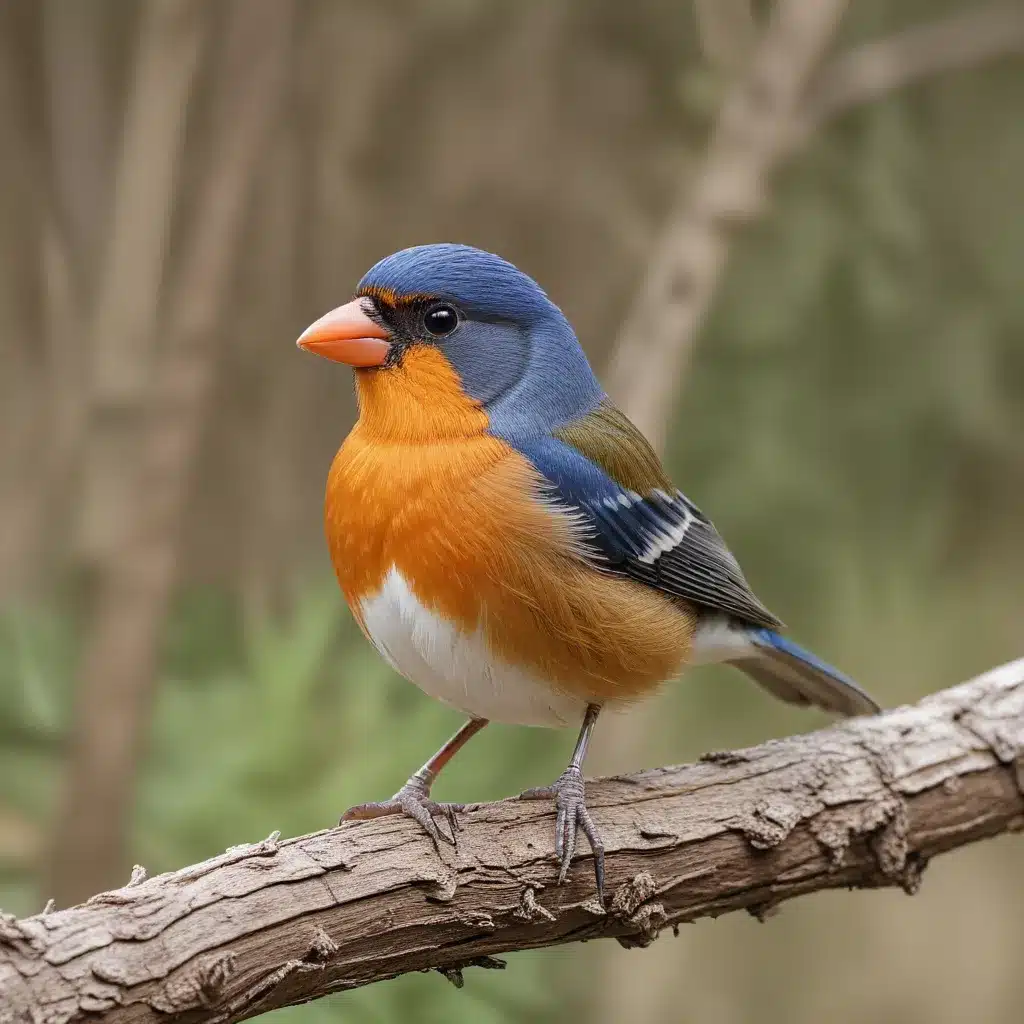
Bridging the Gap: Feeding Strategies for Ensuring Healthy Transitions in Rescued Birds
Avian Rescue and Rehabilitation
As an experienced avian caretaker, I’ve seen firsthand the challenges and rewards of rehabilitating rescued birds. These remarkable creatures often arrive in our care malnourished, stressed, and in need of specialized attention to regain their health and strength. Bridging the nutritional gaps they face is a critical step in their recovery journey.
Rescued Bird Populations
The birds that come to us for rehabilitation represent a diverse array of species – from delicate songbirds to majestic raptors. Each one has its own unique dietary needs and physiological quirks. Some may have been neglected in captivity, while others have suffered injuries or illnesses in the wild. Regardless of their backstory, our goal is to provide them with the tailored care and feeding they require to make a full comeback.
Nutritional Considerations for Rescued Birds
Proper nutrition is the foundation for any successful avian rehabilitation program. Birds have incredibly fast metabolisms and intricate digestive systems that require meticulous attention. Deficiencies in key vitamins, minerals, and macronutrients can quickly lead to serious health issues. As their caretakers, we must be intimately familiar with the dietary requirements of each species under our care.
Transitional Feeding Strategies
The transition from rescue to rehabilitation is a delicate process, both physically and psychologically. Birds that have been deprived of proper nutrition may be wary of new foods or struggle to regain their natural feeding behaviors. Developing strategic feeding plans – with gradual introductions of specialized diets – is essential for coaxing these animals back to full health. Patience, consistency, and keen observation are the keys to success.
Avian Anatomy and Physiology
To provide the best possible nutritional support, we must have a deep understanding of avian biology. The unique attributes of a bird’s digestive system, metabolism, and nutritional needs set them apart from other domesticated species.
Digestive System of Birds
The avian digestive tract is a marvel of evolutionary engineering. Unlike mammals, birds lack teeth and have a specialized crop for storing and pre-digesting food. Their gizzard acts as a powerful grinding mill, while a differentiated intestinal tract efficiently extracts nutrients. Comprehending these anatomical differences is crucial when formulating appropriate diets.
Metabolic Needs of Birds
Birds burn calories at an astounding rate to fuel their high-energy lifestyles. Their rapid metabolisms demand a constant influx of energy-dense foods, accompanied by careful hydration. Rescued birds, often in a weakened state, require even more concentrated nutritional support to regain strength and vitality.
Nutritional Requirements for Avian Health
Beyond the basics of calories and water, birds have specialized needs for vitamins, minerals, and other micronutrients. Deficiencies in components like calcium, vitamin A, or fatty acids can manifest in devastating ways, from brittle bones to compromised immune function. Staying abreast of the latest avian nutrition research is paramount.
Feeding Practices in Avian Rehabilitation
With a solid grasp of avian biology, we can then apply that knowledge to the day-to-day feeding routines of our rescued patients. Meticulous meal planning and monitoring are essential for guiding these fragile creatures back to health.
Specialized Diets for Rescued Birds
Each bird in our care requires a customized diet tailored to its species, age, and medical condition. This may involve a combination of commercial avian pellets, fresh produce, supplemental powders, and even hand-feeding of liquid or pureed foods. Transitioning birds between these specialized diets demands careful observation and gradual introductions.
Monitoring Dietary Intake and Transitions
Closely tracking food consumption, weight changes, and overall condition is crucial for identifying any nutritional imbalances or setbacks. We must be vigilant in our observations, making adjustments to the diet or feeding schedule as needed. Keeping detailed records allows us to fine-tune our approach for each individual patient.
Importance of Proper Nutrition in Recovery
Providing the right nutrients at the right time can make all the difference in an avian rehabilitation journey. Optimal nutrition supports the bird’s natural healing processes, boosts the immune system, and restores the energy needed for a full recovery. By getting the feeding right, we give our rescued patients the best chance at a healthy, vibrant future.
Challenges in Avian Nutritional Management
Despite our best efforts, rehabilitating birds can present some unique challenges when it comes to feeding. Each species has its own idiosyncrasies, and we must be prepared to adapt our strategies accordingly.
Unique Dietary Needs of Different Bird Species
From the insectivorous diet of a songbird to the carnivorous requirements of a raptor, the nutritional profiles can vary dramatically between avian families. What works well for one species may prove disastrous for another. Staying current on the latest research and consulting with avian veterinarians is essential for navigating these species-specific needs.
Addressing Nutritional Deficiencies in Rescued Birds
Many rescued birds arrive in our care with underlying nutritional deficiencies, whether from poor husbandry, illness, or prolonged starvation. Carefully identifying and correcting these imbalances requires a methodical approach, often including specialized supplements or therapeutic feeding. Patience and vigilance are key as we work to restore their health.
Transitioning Birds to Self-Feeding Behaviors
Perhaps the greatest hurdle in avian rehabilitation is coaxing birds back to their natural feeding behaviors. Birds that have become reliant on hand-feeding or specialized diets may struggle to transition to self-feeding, potentially setting back their recovery. Gradual introductions, environmental enrichment, and positive reinforcement can all play a role in this crucial step.
At Mika Birds Farm, we are committed to providing the highest level of care and nutrition for every rescued bird that comes through our doors. By staying at the forefront of avian research, collaborating with experts, and fine-tuning our feeding strategies, we strive to bridge the gaps these remarkable creatures face on their road to recovery. It is a privilege to play a role in restoring their health and returning them to the wild, where they can thrive once more.


